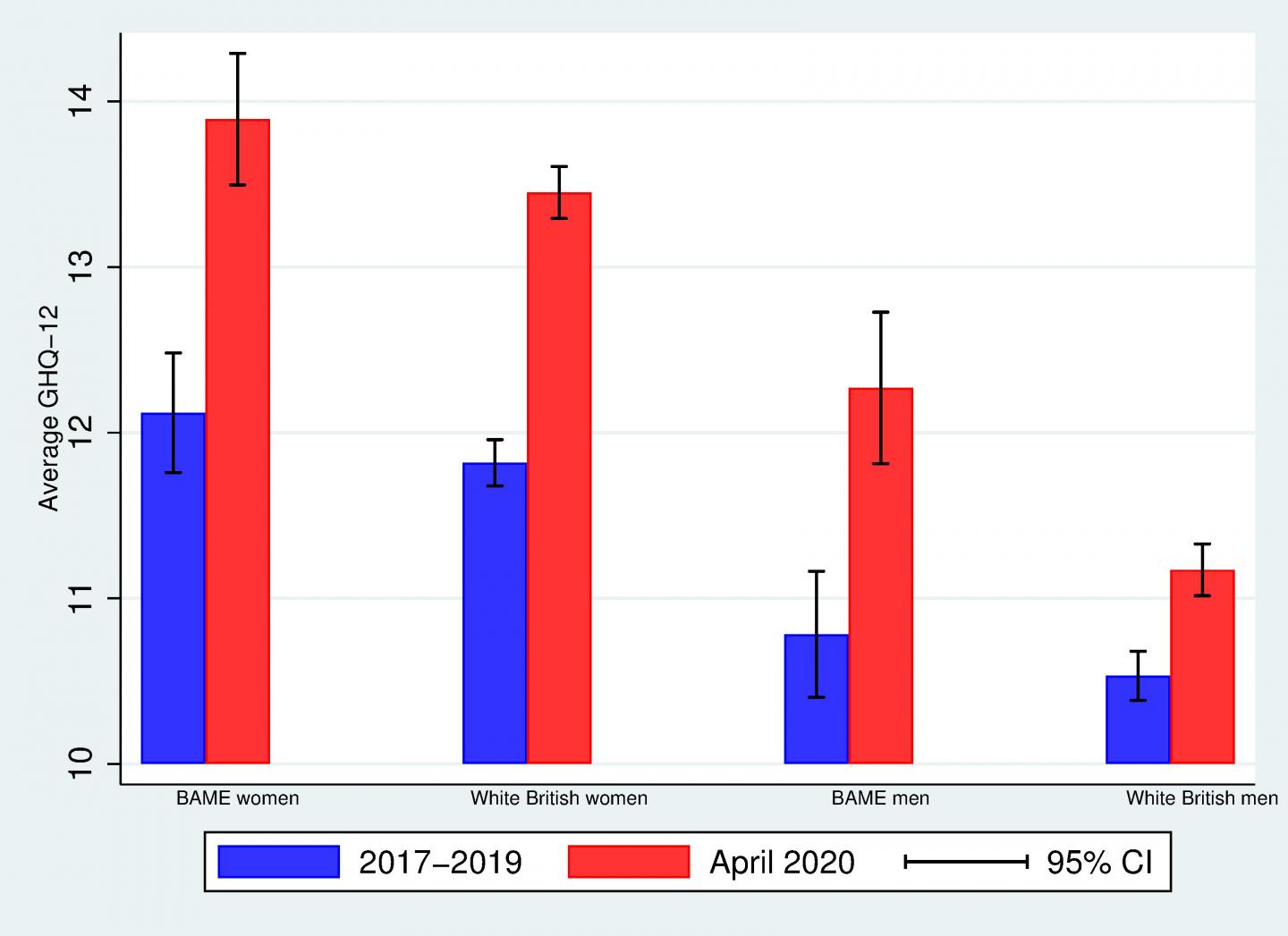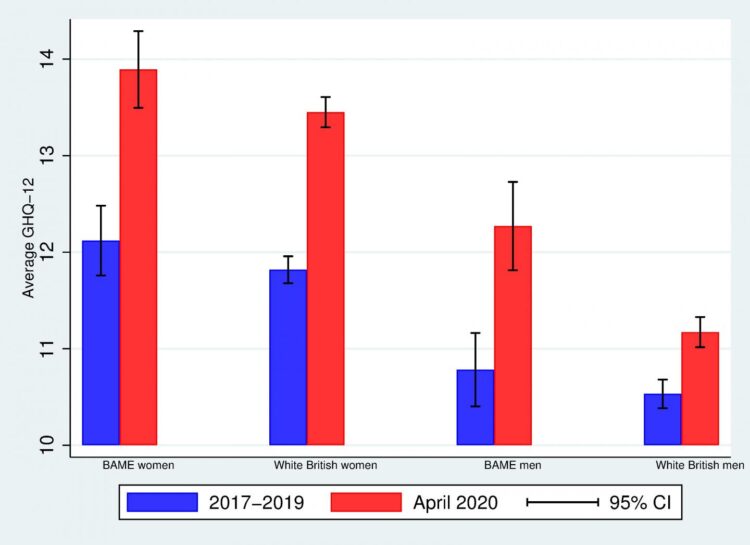UK survey conducted before and during pandemic also indicates increase in average mental distress for all citizens

Credit: Proto E, Quintana-Domeque C (2021) PLOS ONE
In the UK, men from ethnic minorities and women may have experienced worse mental health declines than White British men, according to a study published January 6, 2021 in the open access journal PLOS ONE by Eugenio Proto and Climent Quintana-Domeque of institutions including the University of Glasgow and the University of Exeter, UK.
The COVID-19 pandemic, and the measures enacted to restrict the spread of the virus, have had a major impact on the lives of citizens globally. The authors of the present study examined changes in mental health associated with the pandemic across ethnic groups in the UK.
The researchers used data from the UK Household Longitudinal Study, comparing responses from participants between 2017 and 2019 (i.e.: prior to the pandemic) to responses from the same participants in April 2020 (i.e.: during the pandemic, when severe “lockdown” restrictions were in place in the UK). A total of 14,523 individuals provided responses both before and during the pandemic; 91.5 percent defined their ethnicity as White British and the remaining 8.5 percent as another ethnicity (Black, Asian, and minority ethnic, or BAME). Participants were asked to self-report their health, including their mental wellbeing. These responses were used to measure levels of mental distress, on a scale from 0 to 36.
The authors found that the average mental distress for individuals had increased from 11.28 [95% CI: 11.17, 11.40] in 2017-2019 to 12.51 [95% CI: 12.38, 12.63] in April 2020, a 0.21 standard deviation increase [95% CI: 0.19, 0.23]. Women experienced a greater average increase in mental distress than men, and BAME men also experienced a greater average increase than White British men. While White British men saw an average increase in mental distress of 0.6 units on this scale, White British women experienced an average increase of 1.6 units. BAME men experienced an average increase of 1.5 units, and BAME women of 1.7 units.
While the study conclusions may be limited by the sample size of BAME individuals (only 1,066 of the participants defined themselves as BAME), and by mental distress being measured relatively early on in the pandemic, the research suggests that the pandemic may have particularly affected the mental wellbeing of women and BAME individuals. The authors state that their preliminary findings appear to indicate “the impact of the lockdown and social distancing requirements on mental health being worse among minority ethnic groups.”
The authors add: “Women and Black, Asian, and minority ethnic men experienced a higher average increase in mental distress than White British men from 2017-2019 to April 2020.”
###
Peer reviewed; Observational study/Survey; People
Citation: Proto E, Quintana-Domeque C (2021) COVID-19 and mental health deterioration by ethnicity and gender in the UK. PLoS ONE 16(1): e0244419. https:/
Funding: The authors received no specific funding for this work.
Competing Interests: The authors have declared that no competing interests exist.
In your coverage please use this URL to provide access to the freely available article in PLOS ONE: https:/
Media Contact
Climent Quintana-Domeque
[email protected]
Related Journal Article
http://dx.





